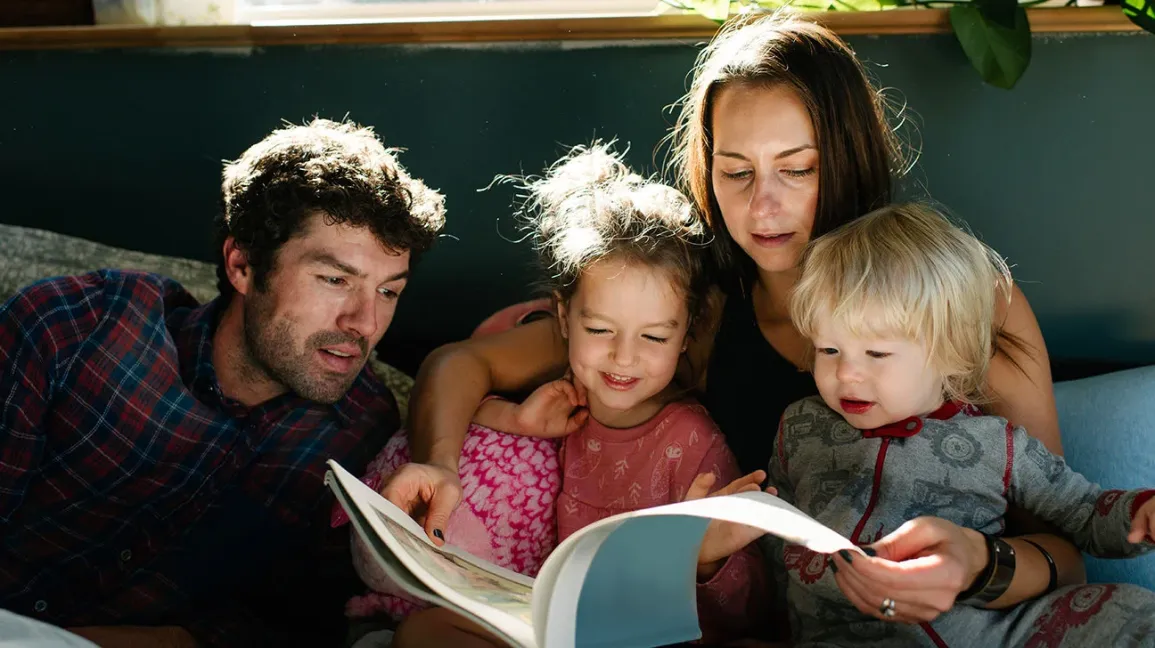When Your Little One Tells a Lie: How to Guide Them Toward Honesty
October 12, 2024
It’s a normal day, and you find your child with chocolate smudged all over their face. You ask, “Did you eat the chocolate?” and their response is an enthusiastic “No!”
Before you call them a liar, pause for a moment. This is not about dishonesty in the way adults think of it. Children, especially those five years old and younger, are still figuring out how the truth works. They’re exploring the blurry lines between truth, lies, wishes, and their own opinions.
Sometimes, when kids say something untrue, it’s not to deceive—it’s because they wish things had turned out differently or they’re still learning the rules of honesty. It’s all part of their development, and as parents, it’s our job to guide them through this phase.
Why Do Young Children Lie?
Children lie for many reasons, but most of the time, it’s not intentional or malicious. They might:
- Wish for a different outcome (e.g., “I didn’t break the toy” really means “I wish I hadn’t broken it”).
- Be testing boundaries or trying to avoid trouble.
- Not fully understand the difference between what’s real and what’s imaginary.
How to Teach Your Child About Truth and Honesty
Instead of focusing on punishment when your child tells a lie, focus on teaching and guiding them.
Here’s how:
-
Stay Calm and Avoid Labels:
If your child lies, don’t call them a liar or take it personally.
Shaming them won’t help. Instead, approach the situation calmly.
For example: If they deny eating the chocolate, you could say, “I see the chocolate on your face, so I know you ate it. It’s okay to tell the truth. I want you to know it’s safe to be honest with me.” This creates a safe environment where they feel comfortable admitting the truth. - Acknowledge Their Feelings and Wishes:
When your child says something untrue, look for the wish behind it.
For instance: If they say, “I didn’t break the toy,” they might be wishing it hadn’t happened. You can respond with, “It sounds like you wish the toy wasn’t broken. Let’s figure out how we can fix it together.” This shows empathy and helps them feel understood. - Teach the Difference Between Truth, Lies, and Wishes:
Use simple words to explain these concepts.
For example: “A truth is something that really happened, like eating the chocolate.” “A lie is when someone says something that isn’t true on purpose, like saying you didn’t eat it when you did.” “A wish is something we hope for, like wishing the chocolate wasn’t eaten or the toy wasn’t broken.” By helping them understand these ideas, you’re giving them the tools to make better choices in the future. - Be a Role Model:
Children learn honesty by watching you. Show them how to be truthful by being honest yourself.
For example: If you make a mistake, admit it and say, “I’m sorry. I didn’t do that the right way. Next time, I’ll try to do better.” If you forget something, you can say, “I forgot to do what I promised, and I’ll fix it now.” When they see you value honesty, they’ll learn to value it too. - Avoid Shaming or Punishing:
Instead of punishing your child for lying, turn it into a learning moment.
For example: If they lie, you could say, “Telling the truth helps us trust each other. Let’s practice being honest together.” Avoid calling them a liar, as this can make them feel ashamed and discourage them from being truthful in the future.
Celebrating Honesty
Make sure to praise your child when they tell the truth, even if it’s hard for them.
For instance: If they admit to breaking something, say, “Thank you for telling me the truth. That was brave, and I’m proud of you.”
This helps them feel good about being honest and encourages them to keep doing it.
This Phase Will Pass with Guidance
Remember, this stage of lies and half-truths is temporary. With your love and support, your child will grow into an honest and trustworthy person. Focus on connection, teaching, and understanding instead of punishment.
Honesty isn’t just about telling the truth—it’s about building trust and feeling safe. When you model honesty, celebrate it, and guide your child with kindness, you’re helping them learn one of life’s most important values.
Stay patient and remember: every time you guide them toward honesty, you’re shaping their character and preparing them for a life of integrity.
Want more easy tips like this?
Join my free parenting group to learn how to raise happy, confident kids!
Recent Blogs
October 24, 2024
October 24, 2036
Get in touch
Kudi Fuster
Parenting Strategist




0 Comments